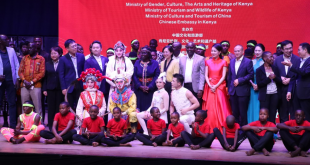Since the foundation of the People’s Republic of China (PRC) in 1949, the country has made great progress in modernizing its society and achieving economic prosperity. In about seven decades following its establishment, the nation has not only grown to become the second largest economy in the world but also succeeded in alleviating poverty for over 750 million of its people. The greatest progress of modern China is arguably said to have begun in 1978 when then Leader Deng Xiaoping launched his economic reform and opening-up program. Since the launch of the program, the country has experienced dramatic changes in economic progress not just in industrialization but also in improving the welfare of its people. Life expectancy that was just 35 years at the birth of the nation doubled to 70 year in about three decades in 1978, and by close of 2019, life expectancy in China is reported to be 77 years. The country has also made great gains in improving the income of its people with World Bank report indicating income per capita rising from just about $156 in 1978 to about $9,770 in 2018. Food insufficiency which led to the massive death of the Chinese race in the 1960s has also become history with China reaching national food selfsufficiency of 95 percent in 2016—thanks to the great progress in agricultural development.
In this brief review of China’s great progress from the perspective of the journey of a Dongfang scholar, we focus on contrasting China’s massive modernization and industrialization of its Eastern region (which makes one questions China’s developing-country status) from the remaining challenges in the Western region, and the path taken by the country to transform its agriculture from peasant subsistence farming to mechanization and commercialization characterized by highvalue addition integrating rural-urban development. In what follows, we begin with discussion of the China’s east-west divide and proceed to discussion of the nation’s path to agricultural development. We then conclude with key lessons learned and what other developing countries, including Liberia, could learn from the Chinese experience.
 Africa -China Review Africa -China Cooperation and Transformation
Africa -China Review Africa -China Cooperation and Transformation
